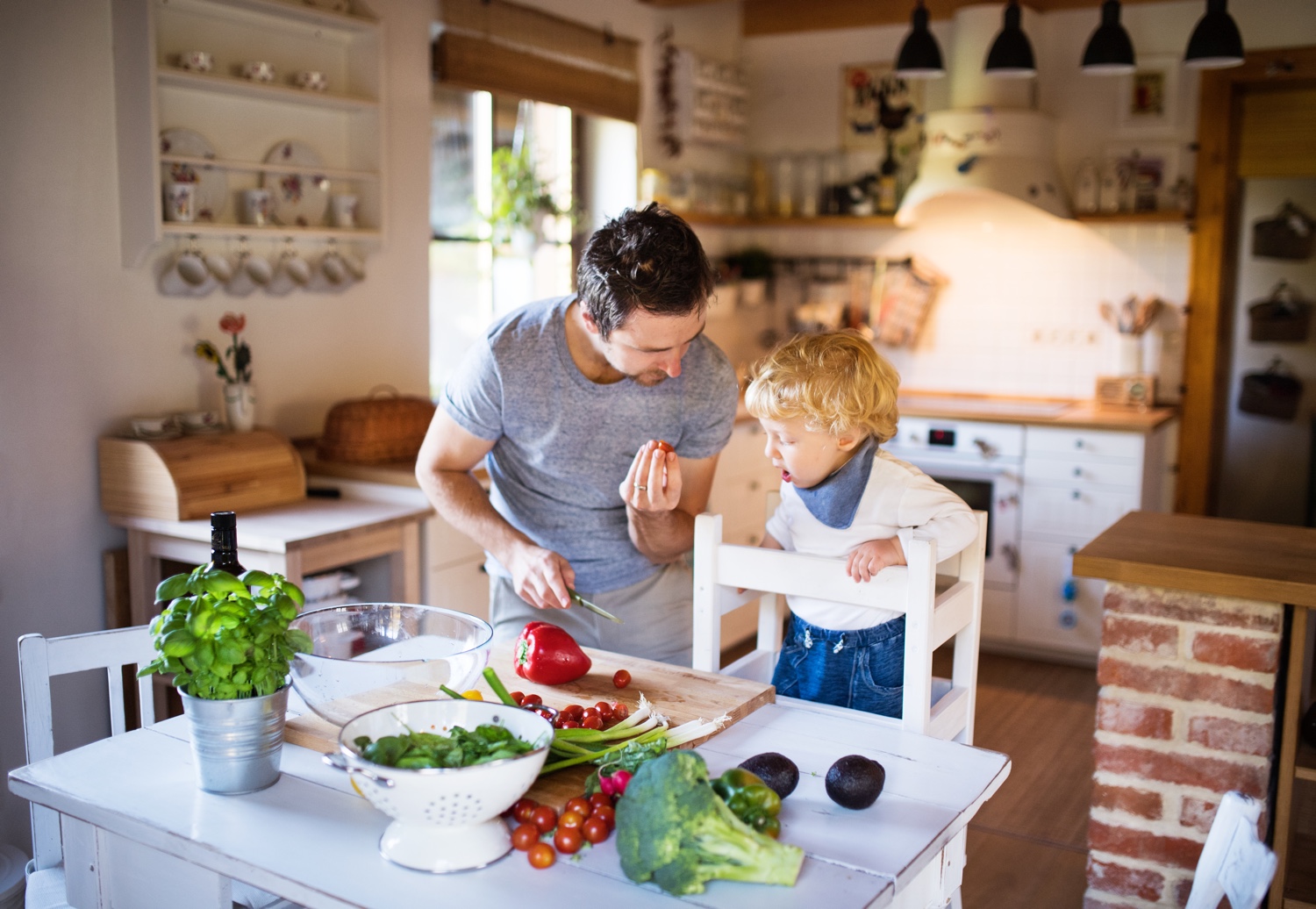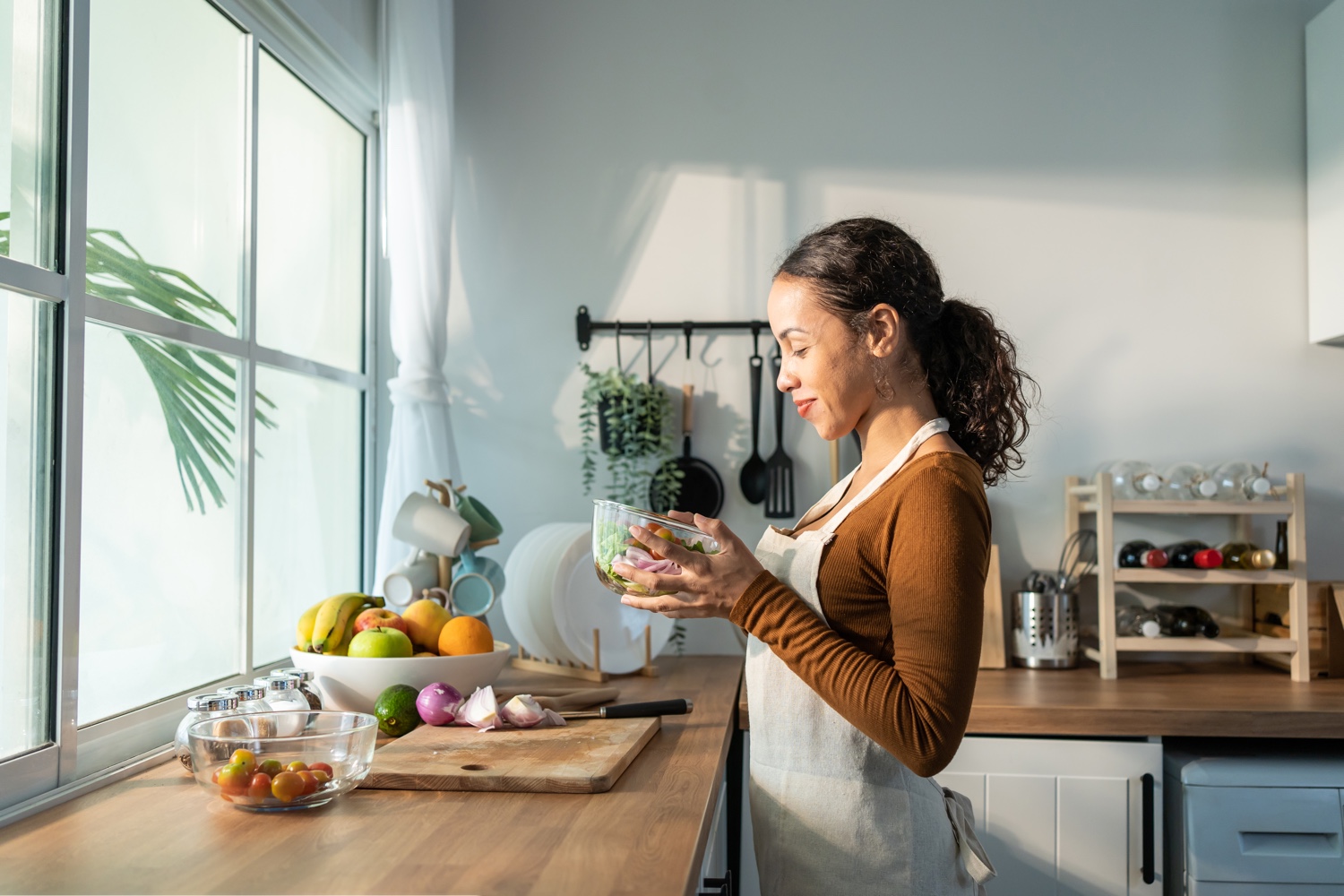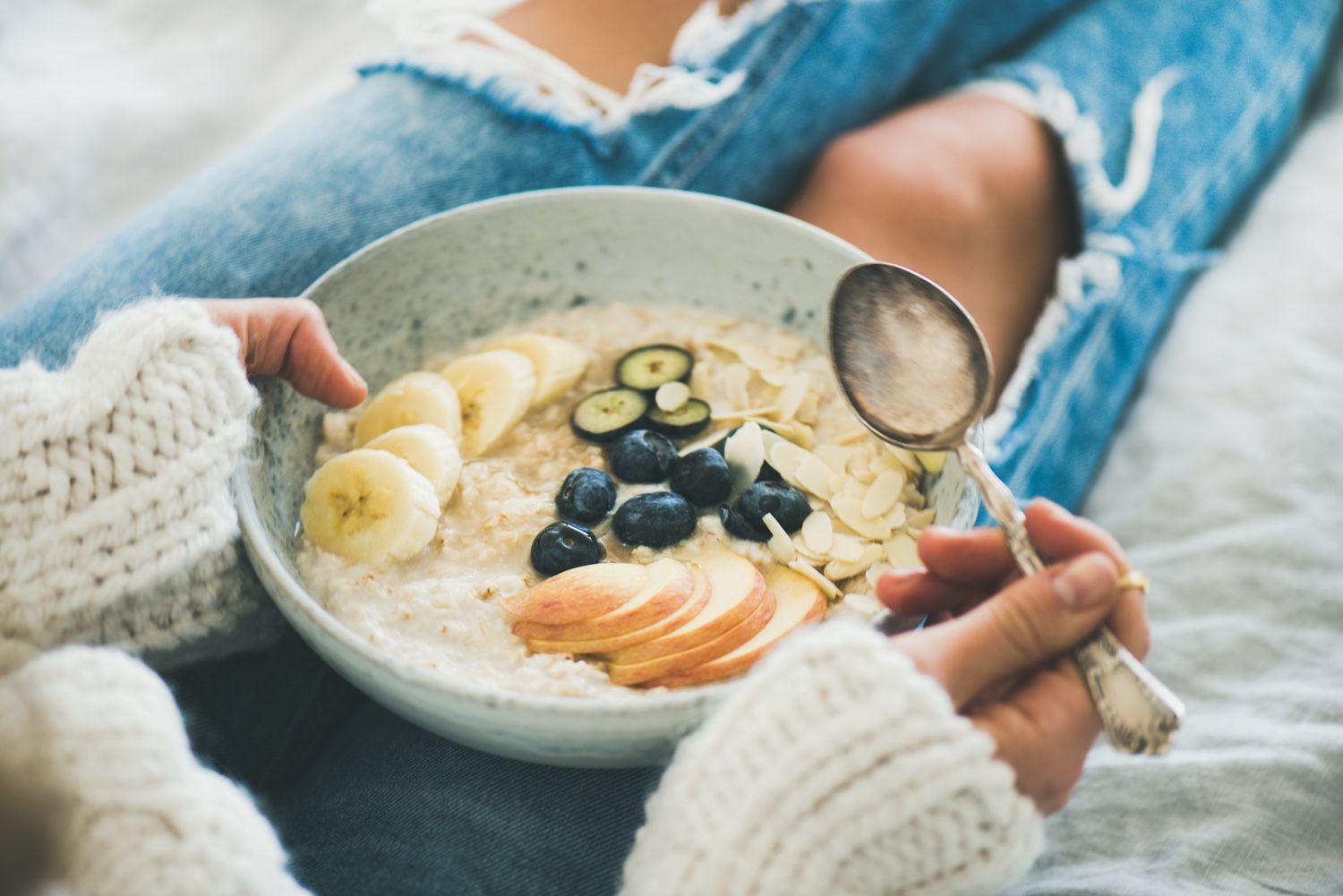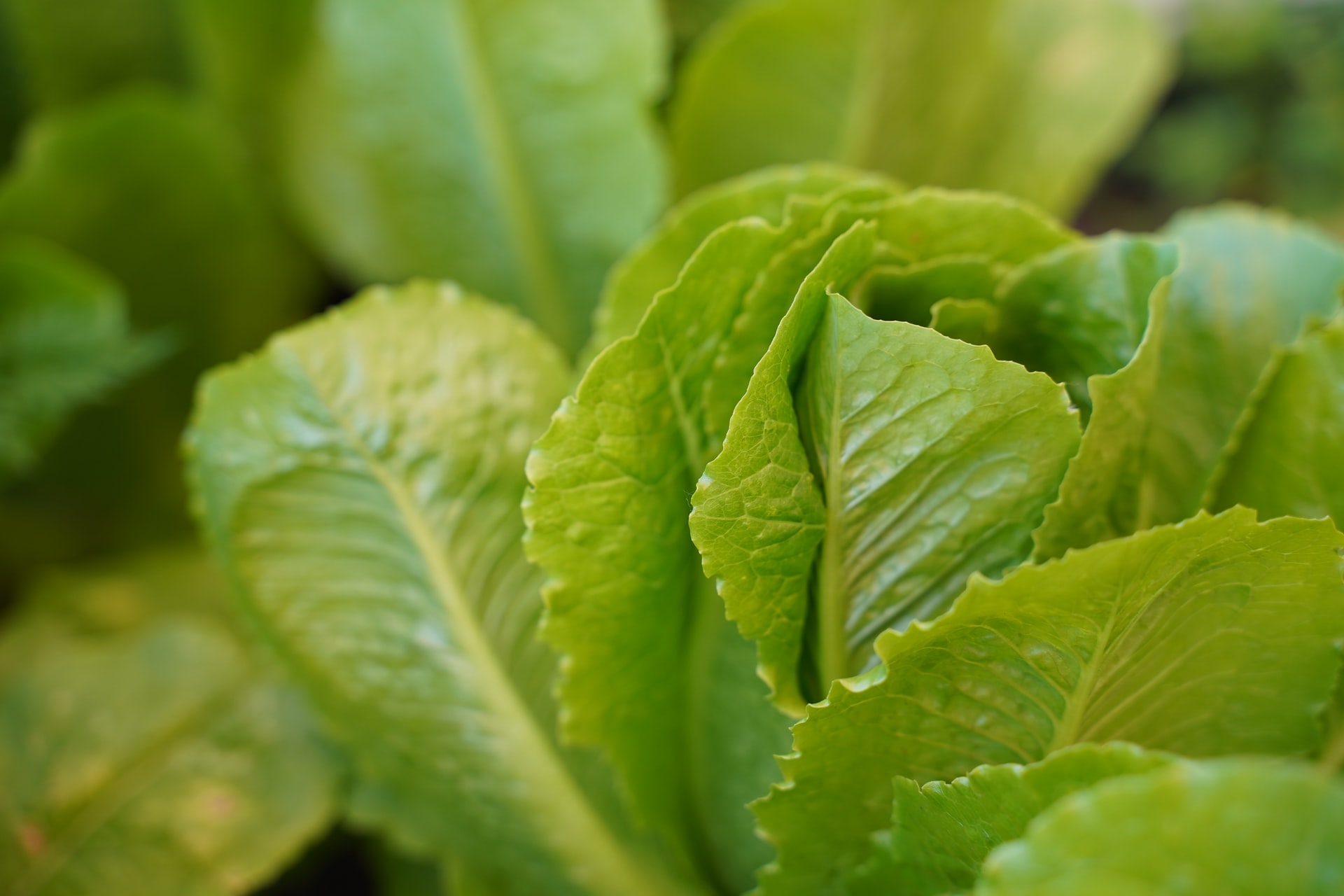
Click play to listen to the podcast episode or continue reading below
Listen on...
When we talk about the basics regarding vegan diets and making the transition, it's important to talk about those first few days, weeks and months into going vegan. I know that I personally had so many questions regarding some of the physical symptoms I was experiencing when I went vegan, and this is completely understandable, as with any dietary change, we are bound to experience differences in the way we feel especially those first few weeks as a vegan.
Today I’ll be talking about the side effects we can experience when we first adopt a vegan diet.
By side effects I'm simply referring to those physical symptoms we might experience as part of the transition to a plant based diet. Feelings in our bodies and minds that will soon find their perfect peaceful place of equilibrium once we understand what could be behind them and what we can adjust until we feel comfortable.
Making more vegan choices or going vegan is also all about the formation of so many new habits, often a huge change from the way we’ve eaten before, or the way our family members or friends eat. This means it can come with challenges as we get acquainted, which is why the mindset we have while making this change is so important, and I’ll share some thoughts in this regard as well, towards the end of this post and episode.
Emotional side effects can also happen, and we’ll be talking all about those next week, and how to navigate the journey if it has become a little rocky.
How to Prepare Yourself for the Transition from Eating Meat to Being a Vegan
Keep in mind throughout this post that if you’re ever feeling overwhelmed while going vegan, and you’re looking for some support when switching to a vegan diet, we guide you every step of the way in our course called The Roadmap, designed to teach you step-by-step, everything you need to know, from vegan nutrition basics, to the social aspects of being vegan, to cooking, prepping, shopping, travel, food substitutions, and so much more.
If we were to start a low carb diet, a low fat diet or any "fill in the blank" diet, we would probably experience things like headaches, difficulty going to the bathroom, fatigue, and we wouldn't think twice about these symptoms. Why? Because these are what we would call mainstream diets, a.k.a the Barnes and Noble "filling the shelves" diets. We've heard of them on the news, from the neighbour who tried them and lost weight, so we feel confident that these uncomfortable symptoms are nothing to be worried about and they'll pass eventually (or until we give up on the diet as is often the case).
Something really strange happens with veganism though, we get this very scary, overwhelming fear that any new symptoms or changes in our bodies are signs that there's something wrong, that we're close to collapsing on the commute home, or that B12 deficiency will kick in, two days into our diet, because we forgot to take our supplement. Same thing goes for the fear of lack of protein on a vegan diet.
Why does this happen with a plant based diet and not with a more standard over the counter diet? Because they -our family, friends, the media, etc.- have ingrained in our subconscious that we need to be really careful with veganism because it's somehow incomplete.

Is a Vegan Diet Healthy?
Before we get started with the typical side effects you might be experiencing, rest assured that not only can a well-planned vegan diet be completely nutritious, balanced and fulfill all our nutrient needs, but it can have added benefits when it comes to our health. The key lies in learning a little bit about meeting nutrient needs as a vegan, and keeping these guidelines in mind when building vegan meals and supplementing when needed.
Learning about some of these essential nutrients, and how to find them in their most absorbable form within a vegan diet is important. We can’t just assume we’ll be getting enough. You can get access to our vegan resource library with all our recommended books, articles, and science based nutrition resources by registered dietitian nutritionists by clicking here.
Going from a Meat-Based Diet to a Plant-Based Diet
I want to ease your mind by telling you that ANY dietary change (especially one as big as going from a standard meat-based diet to a plant-based one), will have effects on your body while it gets used to new foods, especially, because foods in the plant kingdom vary greatly from those in the animal kingdom in one major way: fiber. Our bodies will especially need to adjust to a much higher intake of fiber (a great thing!), but to which our digestive system needs to adapt over the course of the first few weeks or months.
After this first period of adjustment, and keeping in mind those basic nutritional guidelines to make sure you're getting all the nutrients you need, your body will go through so many wonderful changes that your own doctor will be asking you what you've been doing. It might take some tweaking and some adjustments as you go along on your journey, but my hope is that you too will find your little sweet spot, and the ideal balance that is right for you.
Keep in mind that the list I'm sharing with you today are some of the things I personally experienced, or what I've heard from from our students, readers, family and friends who have transitioned into a vegan diet. By no means is this meant as medical or nutritional advice (although I will guide you to those resources here). I simply want to share my experiences and ease your mind if you might be a few weeks into your journey and have been wondering about the physical changes you've experienced: “is this normal?”
This is the mother of all disclaimers...
... only because there is nothing as precious as your body and your health. If any uncomfortable symptoms have you concerned, are lasting too long or not subsiding at all please consult your physician. You can also find a list and directory of doctors and dietitians who have experience with patients who follow this diet in our resource library.
What to Expect when you Go Vegan: Side Effects and Symptoms after Transitioning
We're going to talk about poop and other such fun vegan related stuff. Don't say I didn't warn you! I will first add a list of the positive and neutral side effects and the negative or most uncomfortable ones, and then we'll have a special moment to talk about three of the ones I get asked about more frequently: pooping and feeling gassy, headaches and fatigue, and last but not least, acne.
Keep in mind that everyone is different, and you may or may not experience any of these symptoms. Some people experience several, some experience none and it's all just smooth sailing.
Regardless, consult your healthcare provider about any physical or emotional changes that are causing discomfort, and always know that you can go through this transition into veganism with the support of a dietitian nutritionist like the ones we recommend in our vegan health resources here.
Some Common Vegan Side Effects or Symptoms when Going Vegan
On the positive side:
- A sudden rise in energy levels accompanied by feeling the need to be more active physically. I remember I just felt like moving and felt ready and excited about exercising and walking more.
- More frequent trips to the bathroom. Vegan foods, fruits, vegetables, grains and legumes in particular, are higher in water content, and they are total fiber-rich powerhouses! I've heard from students and readers that used to have days and days of constipation that were suddenly going once a day or more and their digestion improved significantly.
- Better smelling body odor. This one was always mind-blowing for me. The way we smell can sometimes change! (The opposite can also be true. More on this below!).
- A tan-like "glow" on our skin, especially if you're eating a lot of beta-carotene rich foods.
- Clearer skin (the opposite can also be true... more on that coming up next).
- Shinier hair and stronger nails.
- Fewer PMS symptoms.
- Your tastebuds come to life. By removing animal-based products from your diet, you'll soon experience a boost in the tastes of fresh foods, and your cravings can start to change too, provided that you are eating plenty of meals and dishes that are satisfying to you, and that can easily be swapped in for the foods and dishes you used to love (think of satisfaction in terms of both flavor, texture and mouth feel, and satisfaction of fullness).
- Odd cravings for foods you had never felt before. I remember getting serious cravings for things like kale, shiitake mushrooms and brussels sprouts when I had never craved these foods before. Probably due to the fact that lots of foods that weren't in your meal repertoire before, are now more of a staple in your diet, and you begin to find your new favorites that you want to experience again and again.
- Clearer focus and concentration. A feeling of lightness, and a boost in creativity and new ideas. More so related to having a positive mindset when making this switch (more on this below), and the empowerment, excitement and inspiration that comes with making this big positive change.
- Better performance in sports or physical activities in general, more stamina and endurance.
- A higher libido.
- A sense of relief, of doing good, of happiness due to the fact that you're making such a positive change for yourself, the animals and the planet. Greater awareness about the impact we can create and the power we all have on our own health and that of our planet, all of which affect your mental health and well-being.
- Countless benefits long term when it comes to health markers such as cholesterol, triglycerides, blood pressure and more.

On the neutral side:
- Changes in weight: Some people experience weight loss, some people experience no changes in weight, some people experience weight gain. This is one aspect of going vegan that I like to refer to as a neutral side effect since there are so many cultural expectations as to what our bodies should and shouldn't look like, and each person might be going through a different journey when it comes to navigating weight changes. When we go vegan, it can happen that since plant-based foods are naturally lower in calories, some people experience weight loss upon going vegan, but this isn't necessarily the case for everyone. Remember, so many things can affect our weight, starting with our genetics, our metabolism, the foods we eat and our activity levels, our hormonal makeup, and our natural set point range when it comes to weight, aka the weight our bodies will naturally lean towards genetically. If you're struggling with issues regarding changes in weight, we recommend working with a registered dietitian nutritionist that will be able to work with you and your needs specifically, as there is no one approach that works for everyone. We talk a lot about building a more positive relationship with food and body image without obsession, through mindful eating and sustainable habit changes in so many of our blog posts and podcast episodes so feel free to dig around and explore for more support there as well.
On the negative side: Can going vegan make you sick?
Remember to consult your doctor if you are feeling un-well or if any of these symptoms persist for too long (we're providing great resources and medical directories for vegan friendly doctors and dietitians at the end of this post).
- Very frequent trips to the bathroom (more on this below).
- Gas and stomach discomfort: Gas comes with the territory when you first get started (not to mention the fact that it’s a normal part of the digestion process). It can happen though that when you first get started on this journey and are incorporating more fiber-rich foods and especially legumes (foods like beans and lentils), an increase in gas and bloating can really throw you off in the beginning. We'll get into some recommendations and details below.
- A change in body odor (either positive, or in this case sometimes negative). This usually clears up quickly, but it's been a common thread between our students.
- Skin rashes or acne. Although clearer skin can also be a common symptom after going vegan, some people experience acne (like me!). We're talking about what could be one of the culprits below.
- Trouble sleeping. As with any diet change, a new caloric intake and the types of foods consumed can change your sleeping patterns a bit. I felt completely hyperactive in the beginning, which made me wake up earlier than usual (I wish I still had that superpower now! I would get so much done!).

- Strong cravings for animal foods: Any change in your diet can produce cravings for familiar foods, and this is especially true about our emotions towards food and the fact that we're changing our habits in such a big way. It's totally normal to miss some of your favorites, but there are so many vegan alternatives out there now that it's hard to not be able to satisfy a craving. Try some new vegan meats or cheeses. Make sure to include meals that are satisfying to you, and remember that a vegan diet is really just the swapping out of an animal-based ingredient with a plant-based one, and that you can make anything vegan to satisfy your tastebuds and stay happy and balanced with your new way of eating. There is no shame in craving old familiar foods, and wanting to replicate some of the textures and flavors within your new way of eating.
- Feeling hungry more frequently. If you're feeling hungry between meals, please eat! We underestimate how big of a caloric difference plant foods have over the ones we're used to consuming. You might just need to increase your frequency of meals or keep snacks on hand until you find the balance that works for you. Not all plant foods are equal in terms of providing that satiety and feeling of fullness, so make sure meals and snacks include enough protein and enough fat, two of the big pillars when it comes to fullness and satisfaction.
- Feeling fatigued or experiencing headaches. A common symptom, we'll discuss this one in detail below.
- Emotional ups and downs, especially as you deal with family, partners or friends who are unsupportive of your lifestyle changes. Find community. At brownble and especially if you're a member of My Brownble you always have a caring ear and all the support you will ever need on your journey, along with the support of so many others that are going through exactly the same issues as you are. We’ll take an in depth look at some of the psychological and emotional challenges of going vegan in next week’s episode in case you've struggled with difficult emotions, sadness, depression or anxiety after going vegan and you'd like extra support.

Experiencing Frequent Pooping and Gas after Going Vegan
Fruits and vegetables are so high in fiber that they provide us with countless health benefits. Think of fiber as a giant scrub brush that is passing all the way through our digestive system to help move things along. This means that people eating plant-based diets will get a gold star in the pooping department, but I do remember that for me, in the first few weeks these changes in digestion took some getting used to. I was going to the bathroom really frequently until my body stabilized on its own and got used to the higher intake of fiber. I still go to the bathroom twice as much as I used to in my meat-eating days (and this is great!), but an upset stomach, is a thing of the past (and I must say that this - stomach pains, gastritis, diarrhea - was a much more frequent occurrence when I was a meat-eater). None of these should be symptoms that remain in your life past the initial transition, so if these symptoms persist or worry you, consult your doctor.
When it comes to gas, let me ease your mind that this subsides with time. It really takes a while for your body to get used to the increased intake of fiber, and especially if beans and other legumes are new to your diet. If you're experiencing excess bloating, or a strange sensation in your stomach (the best way I can describe it is a constant feeling of having just had something fizzy to drink), this is usually gas, and your body will slowly adapt to digesting these new foods.
Keeping a journal will help so much with noticing which foods might be causing the most discomfort. Once you have the culprits, you can try to add these slowly into your diet. This is how I discovered that contrary to common recommendations which insist lentils don't need to be soaked before cooking them, soaking marked a world of difference for me in the beginning. Canned beans are often easier on the stomach when you get started, and legumes like peas, black eyed peas, white beans and butter beans, lentils and chickpeas, along with foods like tofu are tempeh are great foods to get you started and tend to be easier on digestion. Nowadays eating legumes poses no discomfort for me, and there are also digestive enzymes specifically designed for this purpose that you can take if you are feeling discomfort.

Experiencing Headaches and Fatigue when Going Vegan
Headaches and fatigue might be a common symptom especially if you aren't eating enough calories.
I've heard this symptom from people who are trying to avoid too many carbohydrates, or are worried about the effects the new diet might have on their weight and so they restrict their intake of foods to an unnecessary degree. As with any diet you try, if you're eating too little, your body will respond with these warning signs.
Listen to your hunger signals, and if you're hungry, eat. It will take a few weeks while you learn the basics of how to build a balanced plate that will meet nutrient needs, and while you gauge your new hunger and fullness levels, the foods you like and are satisfying and the foods you don’t, and especially, how much food you’ll need now to fuel all the things that fill your day, until you find your sweet spot when it comes to vegan eating.
Always keep some snacks with you, eat well rounded balanced meals that include protein, carbohydrates and fats, and if you need to, try eating more frequent meals. Each person is different when it comes to meal frequency and size. For you, three bigger meals might be the key, or 5-6 smaller meals more often, etc. Listen to what your body is telling you during, after, and between meals and honor your hunger, remembering that your energy and intake needs might also change from day to day due to differences in activity levels, your hormonal cycle, and more.

Having Acne after Going Vegan
Oh boy can I speak from personal experience when I talk about this side effect. I remember reading books and articles that said that your skin would clear up like magic on a vegan diet. Why then was I suffering from acne when I had never had this issue before in my life?
Thanks to the help of my doctor, I found the key. I was taking too high a dose of my vitamin B12 supplement on just a few days, rather than taking smaller doses every day. First let me say this: if you're vegan, you need to take vitamin B12 or eat enough foods fortified with vitamin B12. This is non-negotiable, period. B12 deficiency can lead to severe neurological, metabolic problems and even death, and if there's one vitamin vegans need to take it's vitamin B12 (as well as any person over the age of fifty no mater what their diet is). There are however different ways to take this vitamin. Many people go for a higher dose just a couple of times a week (what I was doing originally), while others prefer smaller daily doses. Most people won't have the B12 acne issue, but I did when I first got started and my skin cleared up as soon as I started with the lower dose every day. Over a decade later (as I write this), I have since gone back to a higher twice a week dose for the sake of ease, and I haven't had this problem since. For all the information you need on proper B12 supplementation, doses and protocols click here.
Although the lower daily dose of B12 solved this issue for me, know that any changes in diet can cause changes in your hormonal balance and this can also be a cause for acne. If your problem persists or you are getting concerned about anything related to your hormonal health, please consult your doctor.

One Final Note, and the Biggest Tip When Going Vegan: Don't Try to be a Vegan Eating Superhero
I've heard of so many people who try to go vegan, sugar free, oil free, gluten free, soy free, and "you name it" free all at the same time.
Such a restrictive and "all or nothing" approach might take you straight to unhealthy territory rather than the health nirvana you probably thought was attainable by attempting something like this.
Please don't try to be a superhero.
By trying to do it all you'll only feel deprived, anxious and like your entire world was been turned upside down.
Additional restrictions can also lead to disordered eating and even a more serious eating disorder, they can lead to nutrient deficiencies and more.
Instead, focus on why you are probably here, you want to be vegan or start making as many vegan choices as you can. Make this your focus and then go out and live your life. It is far too precious to spend it worrying or over-obsessing. A vegan diet is actually a very simple thing, and it's full of health giving and body loving foods that you can enjoy just as much as your old time favorites, without the need to continue restricting foods or having a fear over certain foods.

The Importance of Mindset
I’ve written before in our blog about the many emails and comments we get from our readers, listeners and students sharing their stories. It is not only the biggest joy for me, but it gives me such a privileged position. I have been seeing your stories from a vantage point for over 8 years now since we started Brownble. No matter how different your stories are, the topic of mindset is kind of like the blank piece of paper (or background on a screen) upon which your words and stories are written.
Mindset is the big elephant in the room that you don’t see, but that if anyone walked into the room they’d notice instantly. It’s what I see, over and over as the backdrop of your journeys. It’s as if this elephant has walked into your house like a quiet ninja, it sat next to you on your couch as you watch TV, it is eating your popcorn, it is changing the channel, and you feel something odd is going on and can’t quite understand, but if someone came into your living room, the first thing they’d tell you is "what's that elephant doing with its feet up on your coffee table?". To me, from an outsider's perspective when I read your emails, mindset is easy to spot. For you, it's a baseline you're often unaware of and if I can tell you one thing it’s that mindset is everything. It can alter the way you experience those first few weeks as a vegan to a huge degree. The elephant, we assume is unchangeable. Heavy and unmovable. A part of one's personality that we sign off as a given. We're either flexible or we're not, we're open to new things or we're not, we believe we can change or we don't. Nothing is further from the truth, and sometimes it’s our mindset that needs the biggest reboot and reframing.
As you move forward on this journey, know that it’s a journey that takes time, it takes adjustments, if you’re experiencing discomfort you can tweak and find what could be going on as you move forward. When you approach this change as an exciting, positive challenge, when you notice that the way you felt on day one or week one isn’t permanent, that as with anything new you’re learning it will take some starts and stops, some detours, some exploration and experimentation until you find the way that makes you feel your best, new habits and positive changes really start adding up.
If you start with trepidation, with a negative filter, with a feeling of lack, seeing it as too hard, impossible, too rigid or expecting to feel deprived this is what you’ll most likely experience. If on the flip side, you see it as an exciting adventure, a new culinary journey, abundance at the table, a challenge in a good way, a way to raise our confidence and assertiveness, something you can get support in, the ride goes much smoother.
Our minds are so powerful, they can even affect our perception of some of those physical changes that might have gone unnoticed otherwise.
One thing that I find can help you with this is a reminder that you are in the driver’s seat and that there is no external pressure pushing you forward trying to keep you in line. You are here because you want to make this change. Yes, even if it was your doctor who recommended it, yes even if you love animals but also love to eat meat. Yes, even if a concerned family member suggested it. Whatever brought you here, remember that no one has the remote other than you, when you are fully conscious and aware that this is something that is important to you, that your mindset will frame your outlook, but that you can hit the pause button, the rewind button, the fast forward button, as often as you need to. It is normal for a big change like this to come with stumbles, and there are ways of navigating them all, and that’s what we’re here for.
Please know that you can always find a supportive community here. Stop by the comments and say hi. Tell us your story. Join us in The Roadmap, it's the ultimate guide on how to become a vegan or make more plant based choices, where we help guide you all the way, step by step. This choice you have made is so positive for you, for the animals, and the world we live in, and we'll be with you every step of the way.
When in doubt, read books, watch films, consult the experts and get inspired.
·····
Enjoy our online library of vegan resources with everything from books, to films, to online videos you can watch right now, podcasts, medical directories and health related information on vegan diets and websites.
·····
🧑🍳
You might also like...
Our Online Cooking School and Courses
Don't miss our weekly goodies!
Our best FREE content straight to your inbox



